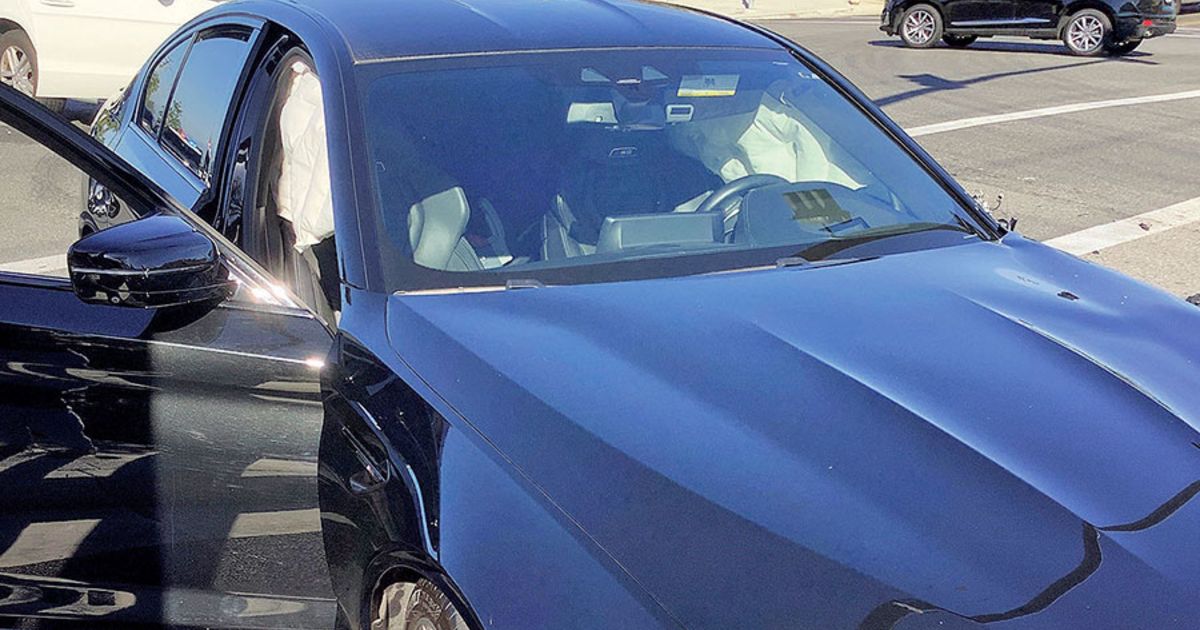
A California man has sued BMW, claiming the automaker improperly kept nearly $25,000 in equity owed him after the M5 he leased in 2019 was totaled amid this year’s hot used-vehicle market.
Alexander Russell’s lawsuit in the U.S. Central District of California seeks class-action status for himself and other BMW lessees experiencing similar circumstances. It estimates the class could span more than 1,000 plaintiffs.
Russell took out a 36-month lease on a $115,816 2019 BMW M5 Competition from Sterling BMW in Newport Beach, Calif., in October 2019. On Feb. 14, 2022, he was involved in an auto accident that left the M5 a total loss.
The lease’s residual value was $81,589.57, the lawsuit states. However, Russell’s insurer, Safeco, set the vehicle’s market value at $106,178.97. Russell’s lawsuit alleged this would leave him with $24,589.40 in equity after the balance of the financing was repaid.
“However, despite numerous attempts by Plaintiff’s attorneys to persuade Safeco to pay out the equity portion to Plaintiff, Safeco complied with BMW’s demands to forward the entire amount to [BMW Financial Services],” Russell’s lawsuit states.
The lawsuit said BMW Financial Services “made misleading statements” in March to Russell’s counsel claiming a total loss both eliminated Russell’s ability to buy the leased vehicle and allowed BMW to cancel the lease. Russell’s suit alleged BMW “provided what looks like a legal conclusion” stating a cancellation meant BMW automatically obtained Russell’s rights to own the vehicle and deal with Safeco.
Russell’s litigation also alleges BMW knowingly falsely contended the captive finance company was entitled to the proceeds of a total-loss claim.
A spokesman for BMW said last week that the company does not comment on pending litigation.
Russell’s attorney, Leon Ozeran, said BMW could call in the lease because of the loss of the collateral involved in the financing. However, Russell could pay off the balance of the loan and keep the vehicle — and any equity left over, Ozeran said. He said Russell is prepared to testify that he would buy the M5.
“In a closed-end consumer vehicle lease, the consumer is always entitled to purchase the vehicle during the term of the lease, or at the end of the lease,” Russell’s lawsuit states.
A copy of Russell’s lease contract provided by Ozeran says he has the option to buy the M5 “as-is, where-is.”
When Russell and BMW executed the lease contract, nobody thought vehicle values would increase, according to Ozeran. BMW provided Russell with free guaranteed asset protection, coverage which covers the balance between an amount financed and the vehicle cash value paid out by an insurer in the event of a total loss. The contract states he won’t owe the gap amount “if the claim to total loss is actually paid to you by my insurance company.”
The lease contract requires Russell to list BMW as an “additional insured and loss payee,” with the right to endorse Russell’s name on checks or settlements and speak to his insurer. The lawsuit argues that the contract doesn’t name BMW the only payee, nor does it give BMW the right to more than the balance of the loan.
BMW called itself the owner of the M5 because it’s listed as such on the title, according to the suit, which calls that ownership role secondary to Russell’s.
Russell sued BMW alleging single counts of misrepresentation and deceit, breach of the implied promise of good faith and fair dealing, conversion, unjust enrichment, interference with contractual relations and potential economic advantage, and unfair business practices in violation of California’s Business and Professional Code.
The litigation and class-action are complicated by a clause in the contract that allows Russell or BMW to demand arbitration. As defined in the document, arbitration ends Russell’s right to class-action litigation and class arbitration. Ozeran said he plans to challenge this too, arguing that the wording effectively meant BMW would never face a class-action lawsuit, for it would always invoke the arbitration clause.